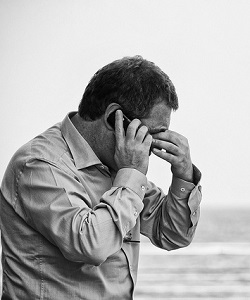
Worry is a very bad habit that keeps us trapped in anticipation, fearing that bad things may happen and expecting the worst.
It is more than an aggravating tendency, it is a waste of good energy that could be put into more productive pursuits.
The great American philanthropist Dale Carnegie pointed out that worrying was a time-wasting exercise. He asked people to consider the following questions.
“Do you remember the things you were worrying about a year ago? How did they work out? Didn’t you waste a lot of fruitless energy on account of most of them? Didn’t most of them turn out all right after all?”
The truth is that much of what we fear and worry about tends to turn out to be quite tepid once events run their course.
But all of us spend a little time and more than too much energy worrying about stuff, especially at work. We create extra stress for ourselves and those around us. Many of us lay awake at night worrying about sales quotas or deadlines, or exactly what did our boss mean when she said we weren’t achieving our full potential.
Dale Carnegie, one of the most successful men in almost any era was not prone to such sleepless nights. He said “If you can’t sleep, then get up and do something instead of lying there worrying. It’s the worry that gets you, not the lack of sleep.”
If you want to stop worrying and start living here are some strategies that you can consider:
1. Get a Grip on Reality
When you get a bad case of “worry-itis,” get a piece of paper and write down the thing that you are most worried about. Then divide the paper in half.
On one side list the facts about your problem and on the other side your worries about the problem. Now read both sides. You may have some very real problems, but you also can see the reality of the situation and how far away from reality your worrying mind has wandered.
2. Forgive Your Past
Sometimes our worries are about our past, particularly about mistakes we may have made. They can nag and gnaw at us — like a hungry dog they can circle around us waiting to take a bite. But only if we let them.
The best way to deal with past mistakes is to stop worrying about them — forgive yourself. And then move on to focus on doing a good job today. We all make mistakes but we can all change too. So stop worrying about the past and concentrate on the present.
3. Forget the Future
Most worries are actually about what the future will bring or that it won’t deliver what we have been hoping for.
But remember that the future doesn’t exist yet. It has not happened and you can still influence it. But only by what you do today.
That’s why you need to stay in the present moment as much as possible. Take action instead of waiting. Deal with your real problems today so that they don’t become your bigger problems in the future.
4. Let Go of What Others Think
You are who you are. You have good qualities and things you need to work on. Guess what? So does everybody else.
So stop worrying about what others may or may not be thinking about you, and start thinking about what you want to work on about yourself. Don’t take things that people say too seriously, especially the critiques and criticisms of your peers.
You don’t have to be perfect so stop pretending that you are. Let those comments roll off you like rain off your anti-worry umbrella.
5. Make a Reasonable Plan for Action
If you have a problem or situation that you are struggling with, don’t just fret and stew about it. Make a plan to deal with it.
It doesn’t have to be exactly the right plan or the perfect plan. Just make a plan and then take some action — any action — toward a solution.
As soon as you move toward the solution, you are moving away from the problem. And as soon as you take action, you can stop worrying and relax. Things are going to be okay.
—
Worry takes up too much time in many of our brains without many any advantages. With these tips, hopefully you can stop letting it live in your head rent-free. How do you stop worrying?
(Photo Credit: Alon)





Discussion